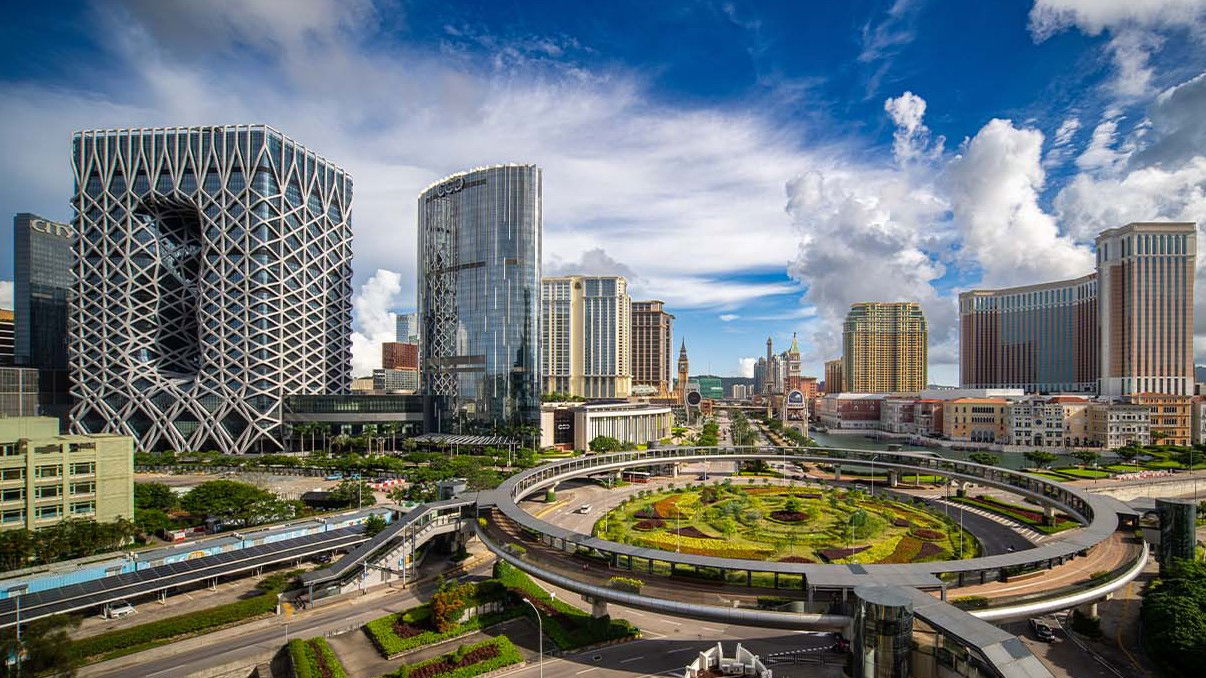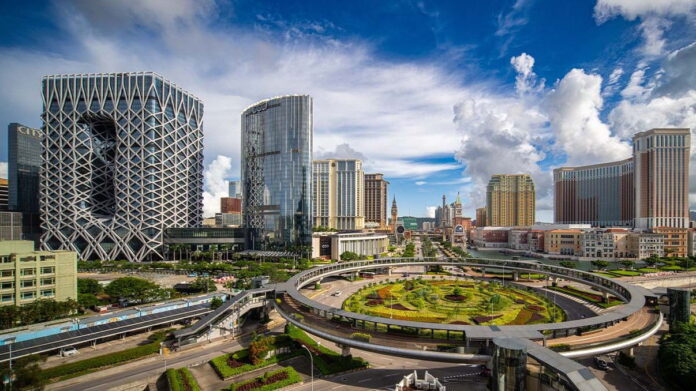
Macau’s government will conduct a midterm review of casino operators’ required non-gaming investments, as part of a broader effort to reduce the city’s reliance on gaming revenue, Secretary for Economy and Finance Tai Kin Ip announced on Friday.
The review will assess whether the six licensed casino operators—Sands China, Wynn Macau, Galaxy Entertainment, MGM China, Melco Resorts, and SJM Holdings—are meeting their commitment to invest MOP130 billion ($16.1 billion) in non-gaming projects under their 10-year concession agreements signed in 2022.
The initiative is a key part of Macau’s “1+4” economic diversification strategy, which aims to develop four new economic pillars—traditional Chinese medicine, financial services, technology, and the meetings and convention industry—while maintaining gaming as a core driver.
Macau’s former chief executive Ho Iat-Seng emphasized that the goal is not to restrict gaming but to “grow the pie” by strengthening other sectors. His successor, Sam Hou Fai, has reaffirmed the government’s commitment to “moderate economic diversification and cultivating new industries with international competitiveness.”
The government has set an ambitious target for non-gaming revenue to contribute 60% of GDP by 2028, leaving gaming at 40%. In 2019, before the COVID-19 pandemic, gaming accounted for over 50% of Macau’s GDP, while non-gaming contributed less than 10%. By 2023, gaming’s share had dropped to 37.2%, while non-gaming industries grew 6.9% compared to 2019, according to the Macau Post Daily.
While Macau has been pushing for more international tourists, a shortage of hotel rooms is limiting visitor spending, warns Alidad Tash, a senior executive at Melco Resorts.
The city currently has 46,000 hotel rooms—far fewer than Las Vegas’ 153,000. This lack of accommodation, Tash argues, discourages overnight stays, which are far more lucrative for the economy than day-trips.
In 2019, Macau saw 21 million day-trippers who spent MOP14.12 billion ($1.75 billion), averaging MOP680 ($84) per visitor. In contrast, overnight visitors spent a total of MOP50 billion ($6.2 billion), or MOP2,681 ($332) per person.
“An additional 5.27 million overnight visitors could match the total economic contribution of all same-day visitors,” Tash noted in an article for Macao News.
Macau’s government and casino operators are working to address the accommodation gap. In 2024 alone, 2,900 new hotel rooms were added, with several major openings further planned for 2025:
• Capella at Galaxy Macau – A 17-story luxury hotel featuring 36 sky villas and 57 suites.
• Sands China’s Londoner Grand Hotel – Adding 2,405 deluxe rooms and suites, opening in May 2025.
• 10 additional hotel projects are in the approval pipeline.
In parallel, Macau’s tourism office, led by Helena Senna de Fernandes, has launched “Experience Macau Limited Edition”, a global marketing campaign aimed at attracting high-value visitors from Europe and the Middle East.
Currently, 90% of Macau’s tourists come from greater China, including Hong Kong and Taiwan.
As the city moves toward its 2028 diversification goals, the upcoming review will determine whether casino operators are meeting their commitments—or if additional measures are needed to accelerate non-gaming growth.
Original article: https://www.yogonet.com/international/news/2025/04/02/100122-macau-to-review-casino-operators-nongaming-investments-as-diversification-push-intensifies














